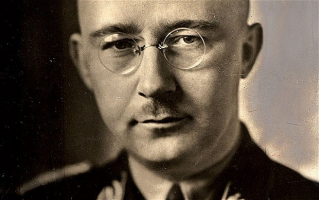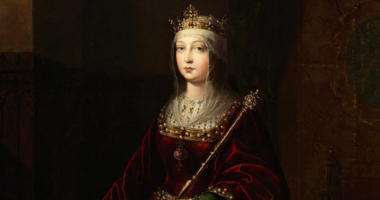Top 7 Interesting Facts about Hugo Chávez
Hugo Rafael Chávez Fras (28 July 1954 – 5 March 2013) was a Venezuelan politician who served as the country's president from 1999 until his death in 2013, with ... read more...the exception of a brief spell in 2002. Chávez was also the founder and leader of the Fifth Republic Movement political party, which combined with several other parties in 2007 to form the United Socialist Party of Venezuela (PSUV), which he led until 2012. Here are the 7 interesting facts about Hugo Chávez you should know.
-
One of the interesting facts about Hugo Chávez is that Hugo Chávez was the host of “Aló Presidente”. He debuted his own Sunday morning radio show, Aló Presidente (Hello, President), on the state radio network in May 2000. This came after a previous Thursday night television broadcast, De Frente con el Presidente (Face to Face with the President). He founded two newspapers, El Correo del Presidente (The President's Post), which he served as editor-in-chief, and Vea (See), as well as Question magazine and Vive TV. El Correo was later closed due to allegations of corruption and mismanagement. He answered people's phones, discussed his current ideas, sang songs, and told jokes on his television and radio broadcasts, making it unique not only in Latin America but throughout the world.
Aló Presidente, which debuted in 1999, was a one-hour broadcast aimed to offer citizens a voice and bring them in direct contact with Chávez. The first radio transmission took place on May 23, 1999, nearly three months after Chávez took office. During Chávez's cancer treatment in Cuba, the show did not air between June 5, 2011, and January 8, 2012. A total of 378 programs were broadcast.
The show was a significant instrument for promoting Chavista socialist ideals and Bolivarian Revolution achievements to followers in Venezuela and worldwide. Many editions were shot in front of large crowds, usually on a local farm, industry, school, hospital, housing project, or other public investment. Despite the fact that Chávez typically appeared on television many times each week, Aló Presidente provided him with an opportunity to contact most families on their day off. It has also been broadcast in countries that Chávez has visited, including Guatemala, Cuba, the Dominican Republic, Brazil, and Argentina.
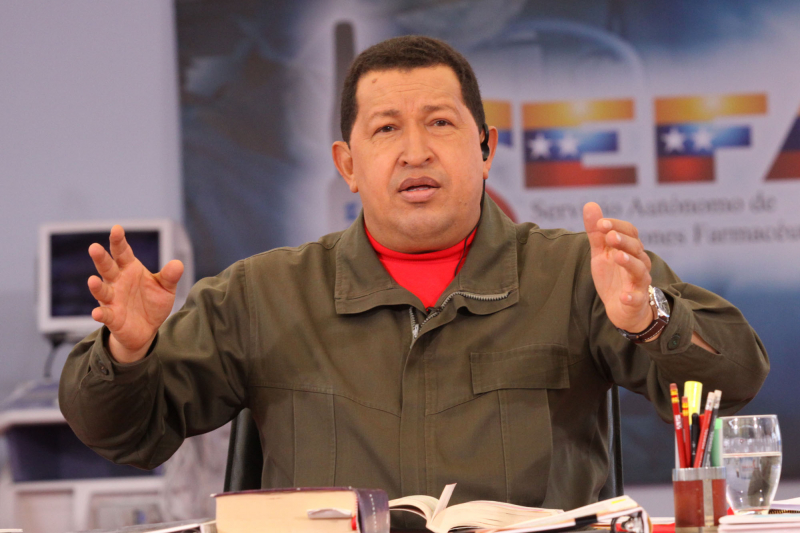
venezuelanalysis.com 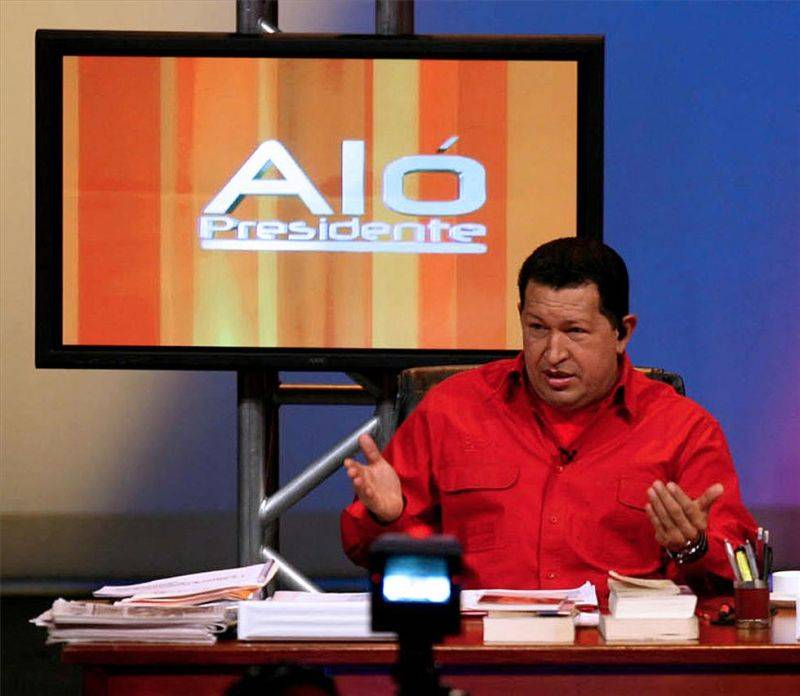
diariodeleon.es -
Hugo Chávez identified his political viewpoint as Bolivarianism, which he derived from Simón Bolvar (1783-1830) and others. Bolivar was a 19th-century general who led the fight against colonialist Spanish authorities and is still greatly regarded throughout Latin America. Simón Rodrguez (1769-1854), a philosopher who was Bolvar's tutor and mentor, and Ezequiel Zamora (1817-1860), a Venezuelan Federalist commander, were the other two key influencers for Bolivarianism, in addition to Bolvar. In his study of Chávez's politics, political analyst and Chávez supporter Gregory Wilpert noted that "the key ingredients for Chávez's revolutionary Bolivarianism can be summarized as an emphasis on the importance of education, the creation of civilian-military unity, Latin American integration, social justice, and national sovereignty." In many ways, this is no different than any other Enlightenment or national liberation thinker's set of ideals and beliefs."
The claim that Chávez's worldview was influenced by Bolvar has also been criticized because Chávez had previously portrayed himself as being influenced by Karl Marx, an opponent of Bolvar. "Describing Bolivar as a socialist warrior in the class struggle, when he was actually a member of the aristocratic 'criollos', is peculiar when considering Karl Marx's own writings on Bolivar, whom he dismissed as a false liberator who merely sought to preserve the power of the old Creole nobility which he belonged", Beddow and Thibodeaux wrote.
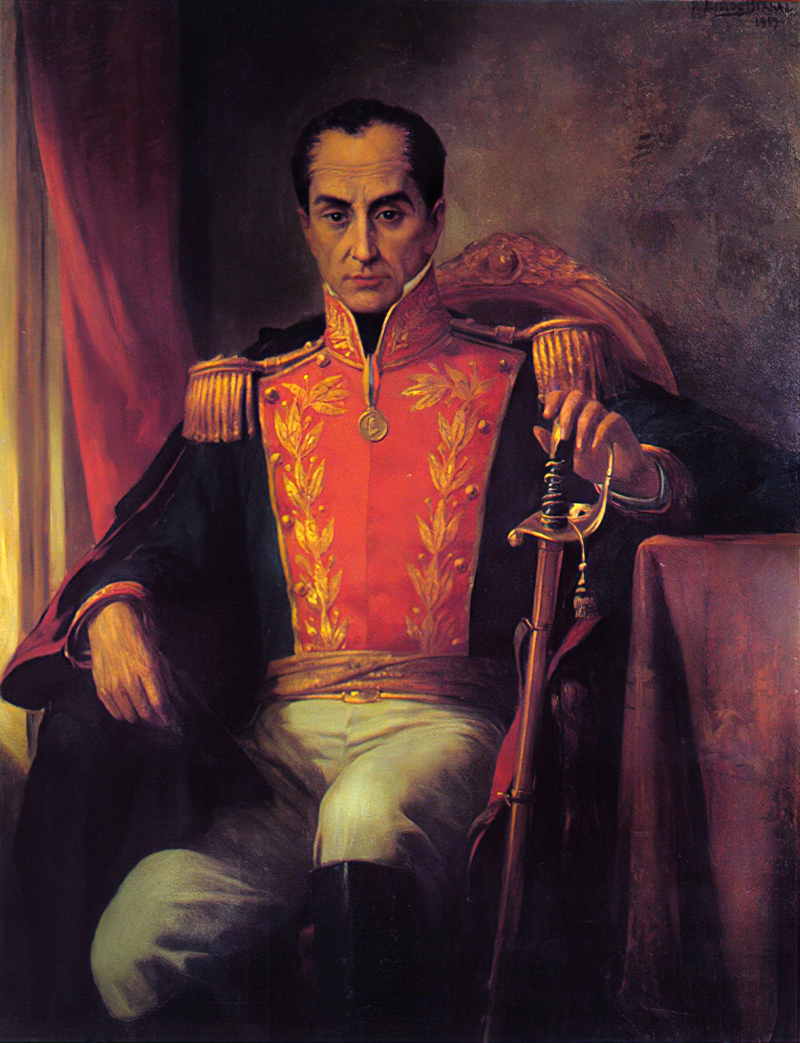
Simón Bolvar -en.wikipedia.org 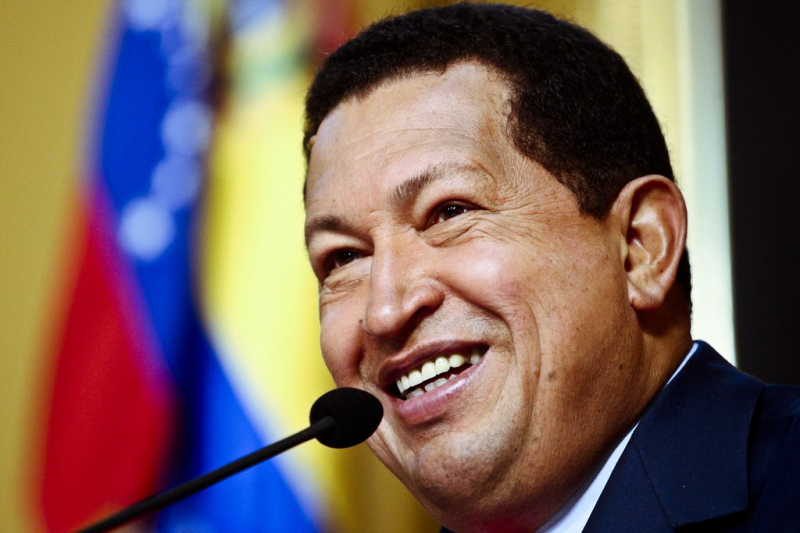
flickr.com -
One of the interesting facts about Hugo Chávez is that he was elected president of Venezuela in 1998. Venezuela held presidential elections on December 6, 1998. Hugo Chávez, a professional military commander who led a coup against then-President Carlos Andrés Pérez in 1992, and former Carabobo Governor Henrique Salas Römer were the leading candidates. Both candidates represented freshly established parties, a novelty in a country where the primary contenders were always from bipartisan parties. Salas Römer represented Project Venezuela, whereas Chávez represented the Fifth Republic Movement (MVR). Initially polling poorly, Chávez ran on an anti-corruption and anti-poverty platform, criticizing the two major parties that had dominated Venezuelan politics since 1958, and began to gain ground in the polls after the previous front runners faded.
Despite the support of the major parties (Copei and Democratic Action), Chávez was elected to his first term as President of Venezuela. The result of a political realignment was the end of the bipartisanship that had dominated the country's political atmosphere for the previous 40 years, and the beginning of the dominance of the new MVR party (later merged into the United Socialist Party of Venezuela) and the Bolivarian Revolution, a system that still holds political power in Venezuela as of July 2022.
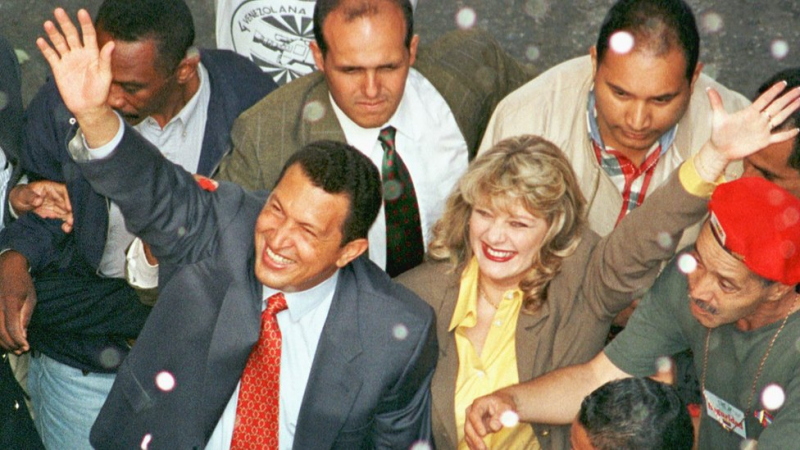
bbc.com 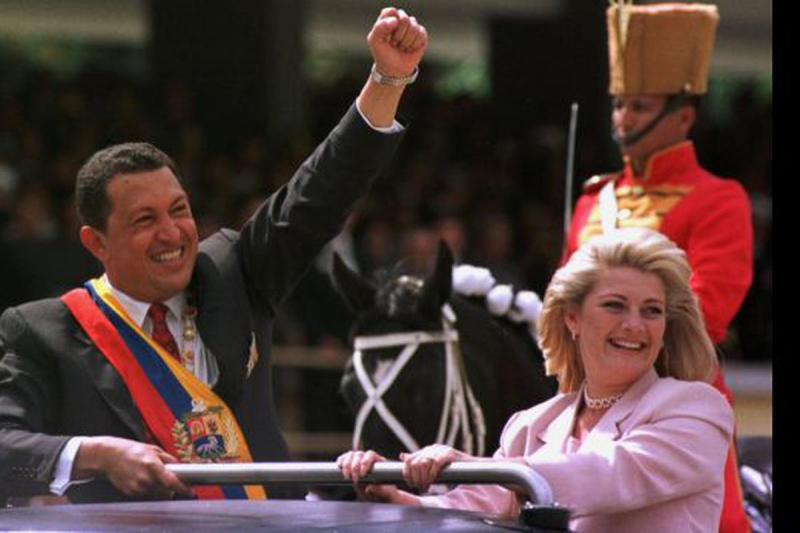
elcomercio.pe -
Chávez led the MBR-200 in its failed coup against President Carlos Andrés Pérez's Democratic Action government. Chávez began planning a military coup known as Operation Zamora. The plan called for military personnel to storm military bases and communication facilities before installing Rafael Caldera as president when Pérez was caught and assassinated. Chávez postponed the MBR-200 coup, which had been scheduled for December, to the early hours of February 4, 1992.
On that date, five army divisions led by Chávez entered central Caracas. Despite years of planning, the coup ran into problems since Chávez had the support of less than 10% of Venezuela's military. Following several betrayals, defections, blunders, and other unforeseen occurrences, Chávez and a small group of rebels were forced to hide in the Military Museum, unable to communicate with the rest of their army. Pérez was able to flee Miraflores Palace. During the subsequent fighting, fourteen troops were murdered and fifty soldiers and eighty civilians were injured.
Chávez surrendered to the government and appeared on television in uniform, urging the remaining coup members to lay down their weapons. Venezuelans, particularly poor ones, began seeing him as someone who stood up against government corruption and kleptocracy. The rebellion flopped militarily and dozens died but made him a media star, according to The Guardian's Rory Carroll.
Chávez was captured and imprisoned at the San Carlos military stockade, suffering from remorse and feeling responsible for the coup's defeat. Pro-Chávez protests outside San Carlos resulted in his transfer to Yare Prison. Another failed attempt against the government happened in November, with the violence during the coups killing at least 143 people and maybe hundreds more. A year later, Pérez was impeached on charges of malfeasance and misappropriating funds.
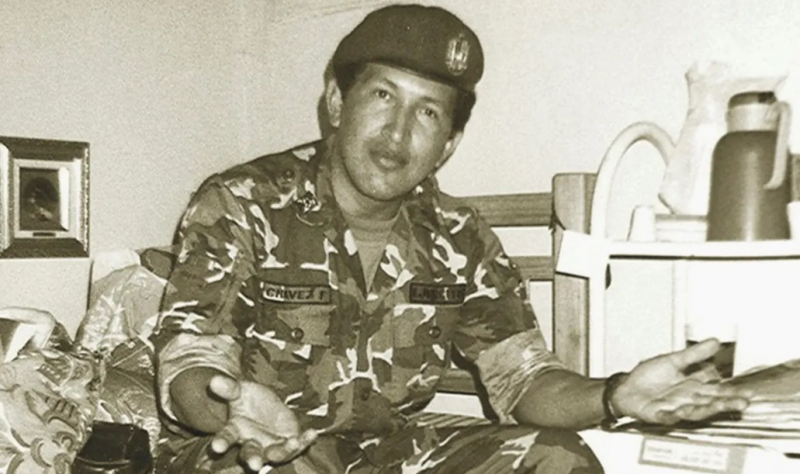
theguardian.com 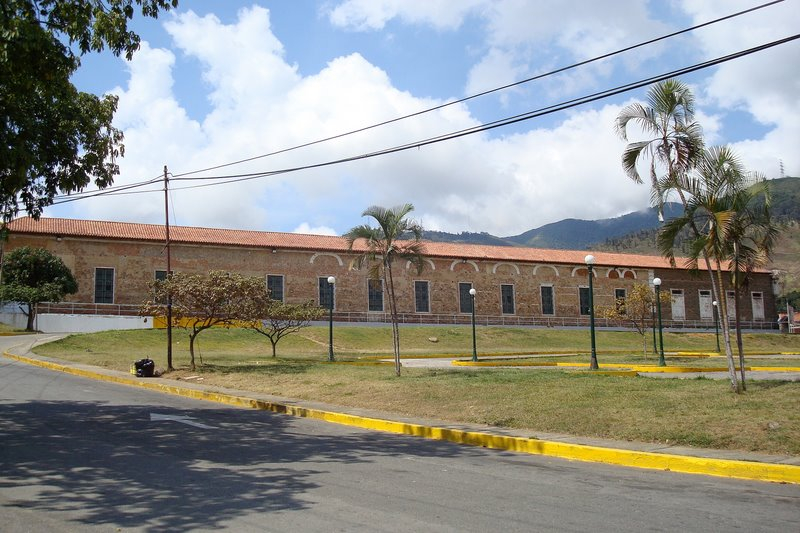
The San Carlos military stockade, where Chávez was held following the 1992 coup attempt -en.m.wikipedia.org -
It is a fact that he founded the clandestine Revolutionary Bolivarian Movement-200. In 1977, he founded a revolutionary movement within the armed forces in the hope of one day establishing a leftist government in Venezuela: the Venezuelan People's Liberation Army (ELPV), which consisted of him and a handful of his fellow soldiers who had no immediate plans for direct action but knew they wanted a middle ground between the government's right-wing policies and the Red Flag's far-left position.
Five years after establishing the ELPV, Chávez established a new hidden military cell, the Bolivarian Revolutionary Army-200 (EBR-200), eventually renamed the Revolutionary Bolivarian Movement-200 (MBR-200). He was inspired by Ezequiel Zamora, Simón Bolvar, and Simón Rodrguez, who became known as the MBR-200's "three roots of the tree." He had always believed that the Bolivarian Movement would become a politically dominant party capable of accepting all kinds of ideas, from the right, from the left, from the conceptual rubble of that old capitalism and communist regimes. Indeed, Irish political analyst Barry Cannon observed that the MBR's early ideology "was a doctrine in construction, a heterogeneous amalgam of thoughts and ideologies, from universal thought, capitalism, Marxism, but rejecting the neoliberal models currently being imposed in Latin America and the discredited models of the old Soviet Bloc".
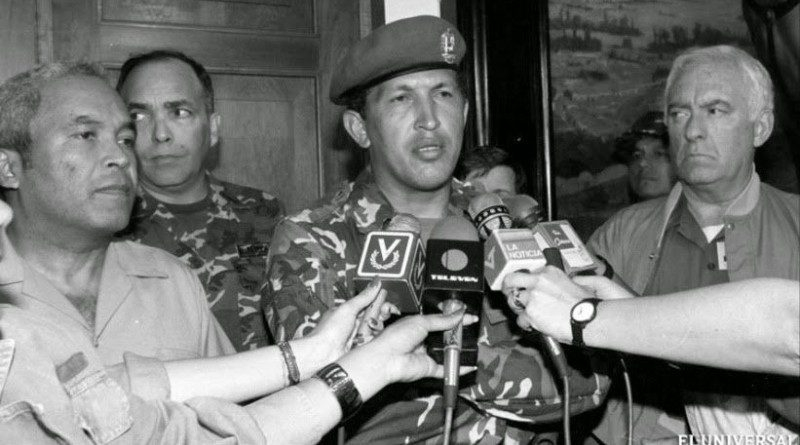
capac-web.org 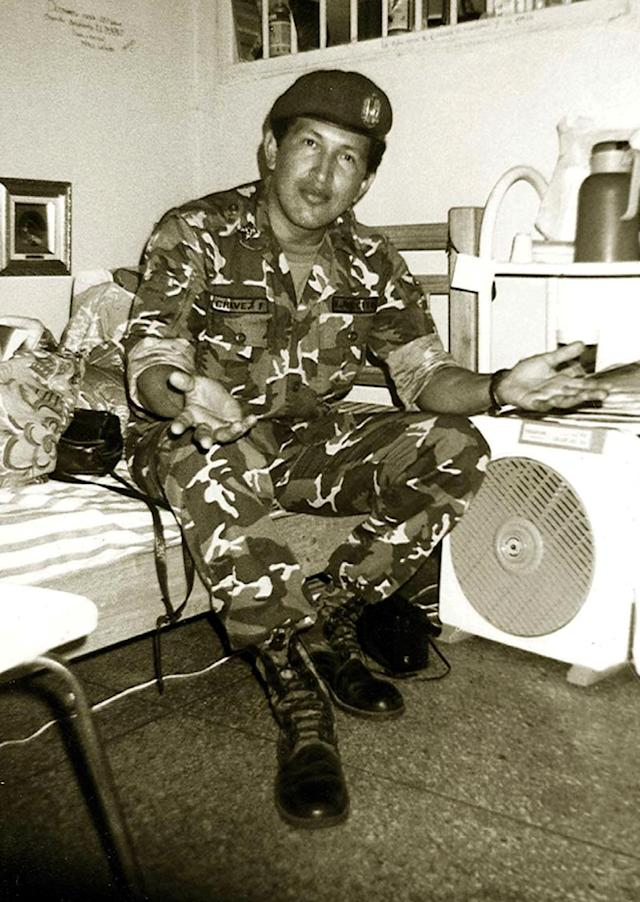
news.yahoo.com -
One of the interesting facts about Hugo Chávez is that he was born into a middle-class family. Chávez was born on July 28, 1954, in the home of his paternal grandmother Rosa Inéz Chávez, in a humble three-room house in the rural village of Sabaneta, Barinas State. The Chávez family had Amerindian, Afro-Venezuelan, and Spanish ancestors. Hugo de los Reyes Chávez, a devoted COPEI member, and Elena Fras de Chávez, schoolteachers in the small village of Los Rastrojos, were his parents.
Hugo was the second of seven children born. Hugo portrayed his upbringing as poor but happy, yet his childhood of claimed poverty has been challenged, since Chávez may have revised his background story for political reasons. Chávez was a student at the Julián Pino Elementary School when he became fascinated with the 19th-century federalist general Ezequiel Zamora, in whose army his own great-great-grandfather had served. Hugo's parents left Hugo and his older brother Adán to live with their grandmother Rosa, who resided in a government-subsidized lower middle-class home, where they attended Daniel O'Leary High School in the mid-1960s. Hugo was an altar boy at a nearby church, and she was a fervent Roman Catholic. Despite earning the wages of a teacher, his father assisted Chávez and his siblings in paying for college.
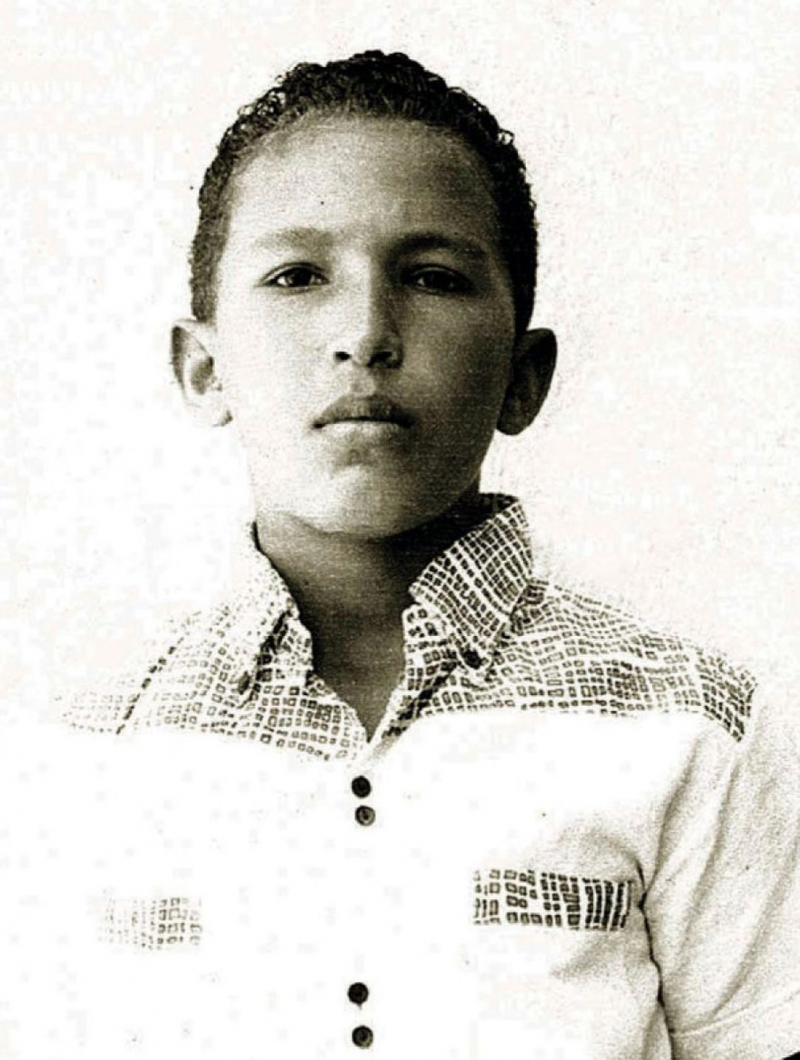
Hugo Chavez is seen in a family photo -thestar.com 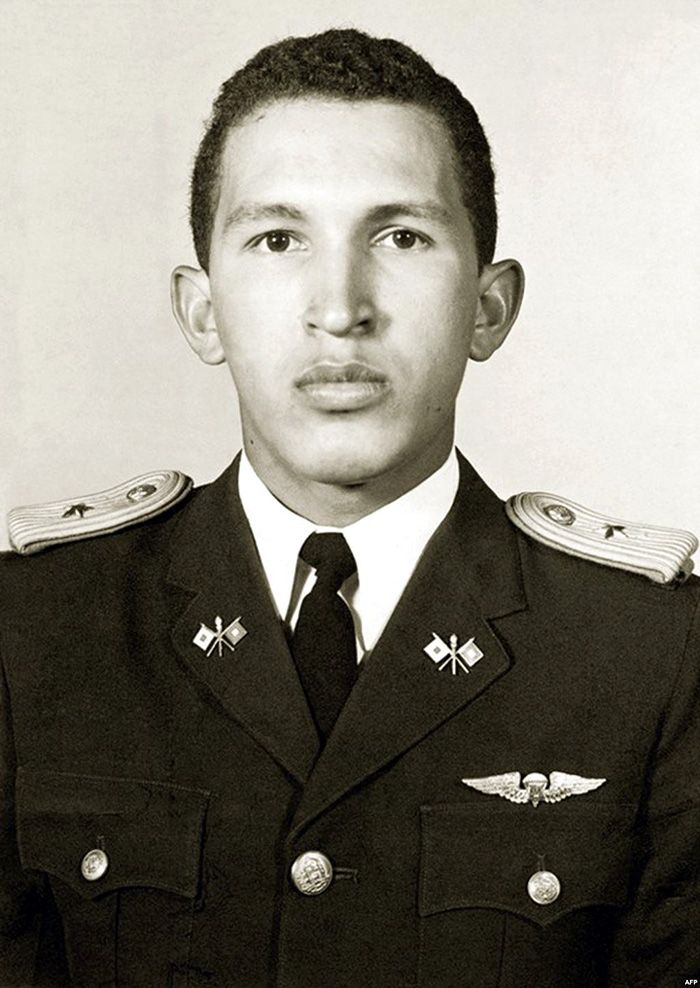
globallearninginburnaby.com -
It is a fact that Hugo Chávez died on 5 March 2013 from cancer at the age of 58. On March 5, 2013, Vice President Nicolás Maduro stated on state television that Chávez had died at 16:25 VET in a military hospital in Caracas (20:55 UTC). According to the Vice President, Chávez died after battling a difficult illness for over two years. According to the chief of Venezuela's presidential security, Chávez died of a major heart attack, and his pelvic cancer was advanced at the time of his death.
Leamsy Salazar, Chávez's former bodyguard, defected from Venezuela and reported that he died in December 2012, months before his death was officially revealed. Former Attorney General Luisa Ortega Daz also stated in July 2018 that Chávez died in December 2012 and that the notification of his death was postponed for political reasons. The former Chávez supporter stated in an interview quoted by Venezuelan daily El Nacional that the Venezuelan president died on December 28, but his closest friends opted to delay the announcement and never submitted the death certificate to the Office of the Attorney General. The alleged delay in announcing Chávez's death aroused worries that laws signed in his name during that time period were forgeries. His death sparked a constitutional necessity to call a presidential election within 30 days of his death. On April 14, 2013, Maduro, Chavez's vice president, was elected president.
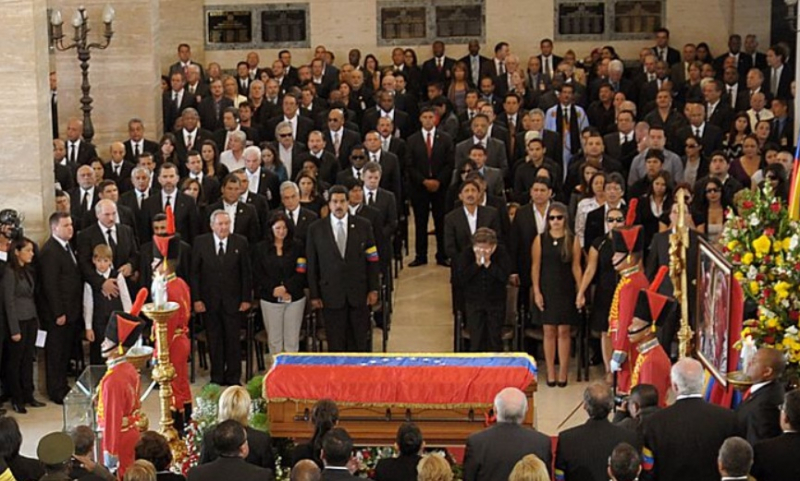
en.wikipedia.org 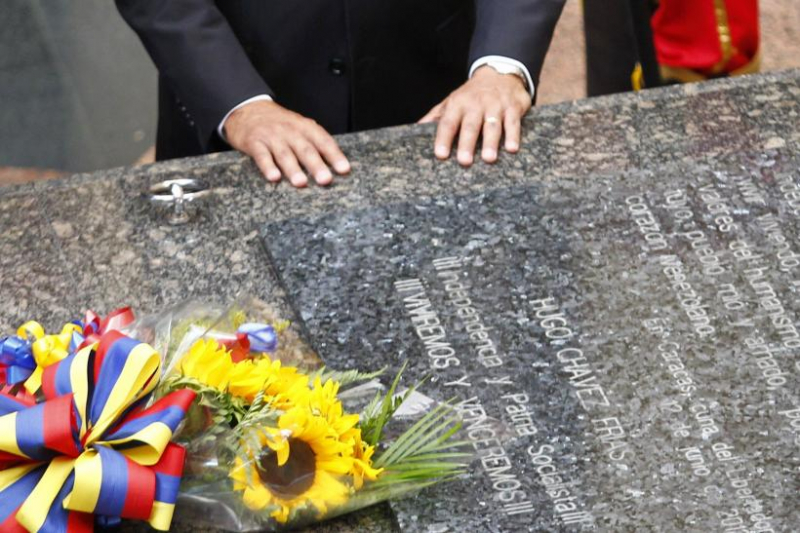
ibtimes.com

























